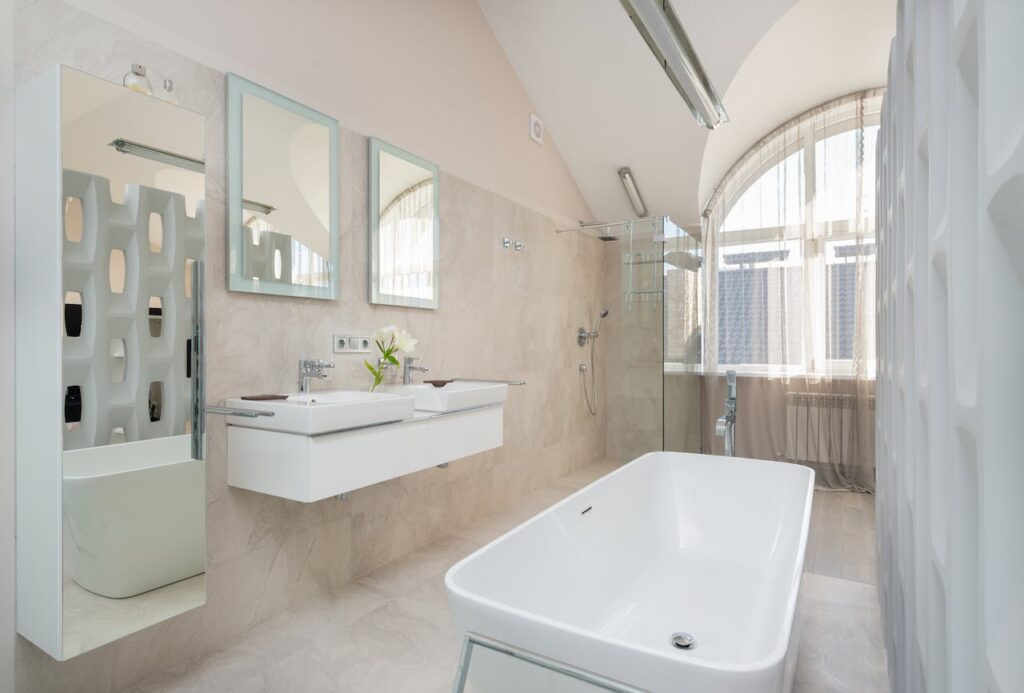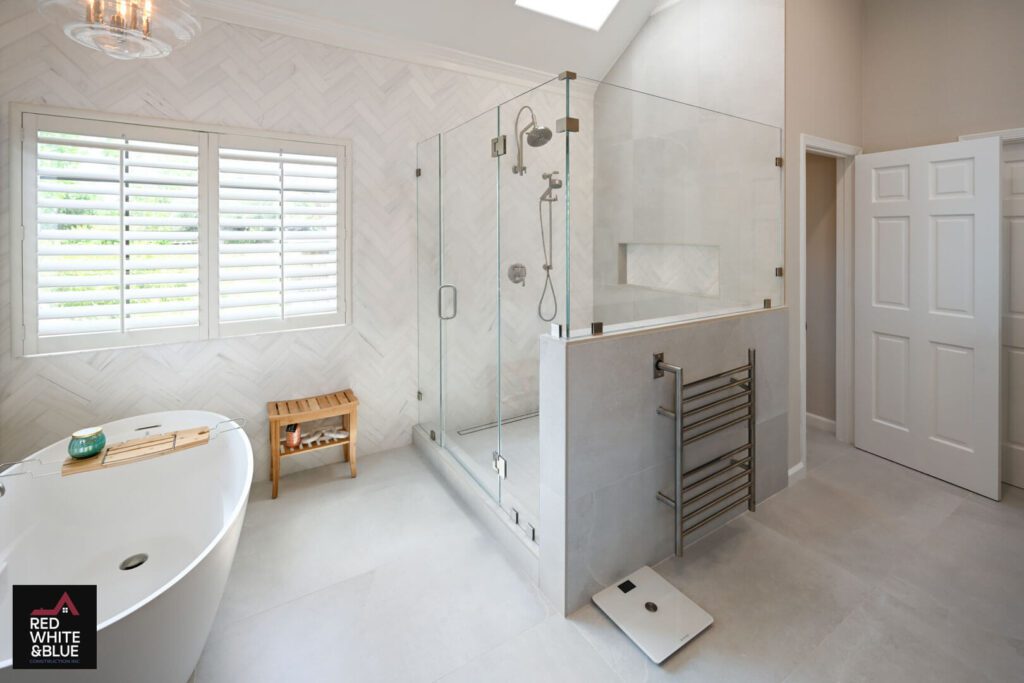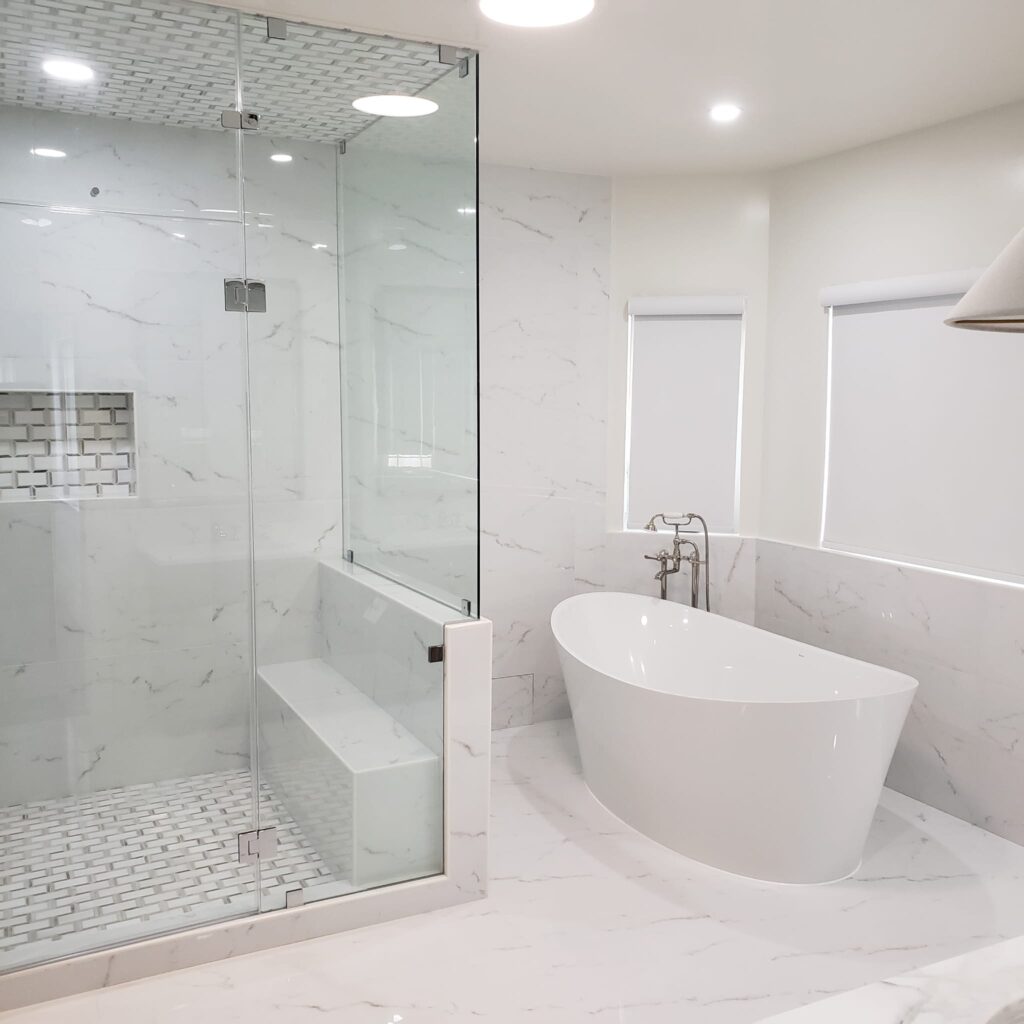Thinking about tackling a DIY shower and tub installation project? Wondering if the cost-saving benefits outweigh the potential risks involved? From enhancing your bathroom’s aesthetics to customizing your space, the allure of a DIY installation can be tempting. However, without professional expertise, you may encounter challenges like plumbing issues or improper fittings that could lead to costly repairs down the line. Before diving in, it’s crucial to weigh the pros and cons carefully.
Pros of DIY Tub-To-Shower Conversion
Customization Freedom
Enjoy the freedom to customize the design and layout of your new shower space. You can choose the materials, colors, and features that suit your preferences and style. This allows you to create a unique and personalized shower experience tailored to your needs.
Skill Enhancement
Undertaking a DIY tub-to-shower conversion project enables you to gain hands-on experience in plumbing and construction. By tackling this project yourself, you have the opportunity to learn new skills and techniques. This practical experience can be valuable for future home improvement projects or repairs.
Sense of Achievement
Completing a DIY shower conversion project can provide a personal sense of achievement. As you see your vision come to life and witness the transformation of your bathroom, you’ll feel a great sense of pride in accomplishing the task independently. This accomplishment can boost your confidence and motivate you to take on more DIY projects in the future.
Cons of DIY Tub-To-Shower Conversion
Potential Financial Losses
DIY tub-to-shower conversion can face potential financial losses as errors due to lack of expertise can lead to costly mistakes. Inaccurate measurements or improper installation may result in the need for professional intervention, increasing overall expenses.
Encountering unexpected challenges during the process can risk compromising the quality of installation. Without proper knowledge and tools, the structural integrity of the shower conversion may be compromised, leading to leaks, water damage, or other issues that require immediate attention.
Time Investment Disruption
Embarking on a DIY tub-to-shower conversion project can encounter significant time investment that disrupts your daily routine. Researching, planning, and executing the conversion process demands time and effort, potentially causing delays in completing other essential tasks or activities.
Potential Financial Losses
- Errors from lack of expertise
- Costly mistakes
- Need for professional intervention
Time Investment Disruption
- Researching, planning, and executing
- Demands time and effort
- Delays in completing essential tasks
Common Mistakes in DIY Projects
Measurement Errors
Improper measurements can lead to ill-fitting fixtures and components in DIY shower and tub installations. This oversight often results in frustrating setbacks, requiring additional time and resources to rectify. Homeowners may find themselves dealing with mismatched parts that comprise the functionality and aesthetics of their bathroom space.
Waterproofing Neglect
Neglecting proper waterproofing techniques is a common mistake in DIY projects, especially in shower and tub installations. Without adequate waterproofing, water damage and mold growth can quickly become significant issues. Overlooking this crucial step can result in costly repairs and renovations down the line, impacting both the structural integrity of the bathroom and the health of its occupants.
Misinterpretation of Installation Instructions
Misinterpreting installation instructions can have serious consequences in DIY shower and tub projects. This error often leads to delays as individuals struggle to backtrack and correct their mistakes. Inaccurate installation can also result in additional expenses, as homeowners may need to hire professionals to fix the errors or replace damaged components.
Safety Concerns with DIY Installations
Hazards Exposure
Improper handling of tools and materials in DIY shower and tub installations can expose individuals to various hazards. Lack of experience may lead to accidents like cuts, bruises, or even more severe injuries. It’s crucial to prioritize safety by using protective gear and following proper procedures.
Risk of Injury
Working in confined spaces during a DIY installation project poses a significant risk of injury. Limited mobility can increase the chances of accidents or getting stuck in tight spots. Slippery surfaces in bathrooms can further elevate the risk of falls and injuries. Proper precautions, such as having someone nearby for assistance, are essential to mitigate these risks.
Legal Repercussions
Failing to adhere to local building codes is a common pitfall in DIY projects, including shower and tub installations. Ignoring these regulations can lead to serious legal repercussions. Penalties, fines, or even having to redo the entire installation process due to non-compliance can be costly and time-consuming. It’s vital to research and understand the building codes specific to your area before starting any DIY project.
Pros and Cons
- Pros: Cost-saving potential, customization options.
- Cons: Safety risks, legal implications, lack of expertise.
Assessing Your Skills for Installation
Evaluate Skills
Assess your previous experience with home improvement projects. Have you tackled similar tasks before? Can you confidently handle basic tools like wrenches and screwdrivers?
Consider the complexity of plumbing and electrical work involved in shower and tub installations. Identify any knowledge gaps you may have in these areas. Are you comfortable working with pipes and wiring?
Seek Advice
Reach out to experienced DIYers or professionals for guidance. They can provide valuable insights and tips based on their own experiences. Consider joining online forums or local workshops for additional support.
Pros:
- Gain valuable skills and knowledge
- Save money on installation costs
Cons:
- Risk of making mistakes that could lead to costly repairs
- Potential safety hazards if installations are not done correctly
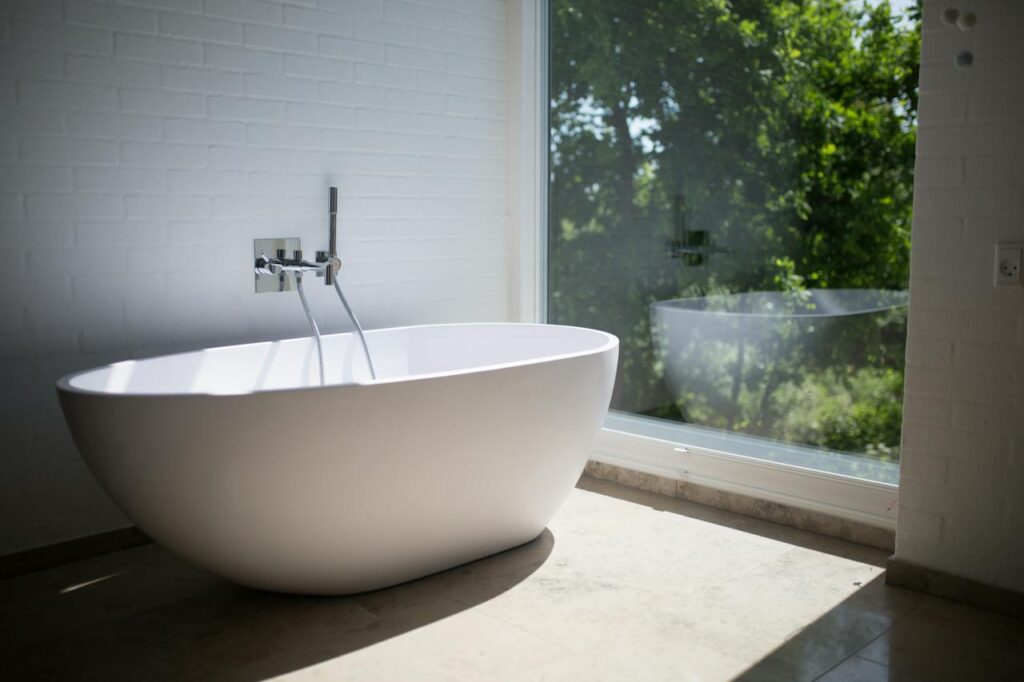
Time Commitment for DIY Projects
Planning Phase
For a DIY shower and tub installation, the planning phase is crucial. Allocate approximately 10-20 hours to research the project scope, measure the space, and create a detailed plan. This phase involves determining the layout, selecting fixtures, and estimating costs.
During this stage, it’s essential to consider various factors such as plumbing requirements, structural modifications, and necessary permits. Gathering information on building codes and regulations can help prevent delays during the execution phase.
Purchasing Materials and Tools
purchasing materials and tools for the project can be time-consuming. Depending on the availability of items and your location, it may take a few days to a couple of weeks to acquire everything you need. Consider factors like delivery times, product availability, and comparing prices from different suppliers.
Creating a checklist of required materials and tools can streamline the purchasing process. Online research and visiting local hardware stores can help you find the best deals and quality products for your DIY installation.
Execution and Installation
The actual execution of the shower and tub installation is where most of the time will be spent. Depending on your skill level and experience, this phase can take anywhere from 20-40 hours or more. Factor in additional time for unexpected challenges, mistakes that may need rectification, or waiting for assistance if required.
Taking breaks during the installation process can help prevent fatigue and ensure accuracy in your work. Following step-by-step guides or tutorials specific to your project can enhance efficiency and reduce errors.
Dealing with Delays
Despite meticulous planning, delays are common in DIY projects. Unforeseen complications, incorrect measurements, or unexpected issues can prolong the installation timeline. Allocate an extra 10-20% buffer of time to accommodate these delays without feeling rushed or stressed.
Having a contingency plan in place can mitigate the impact of delays on your project schedule. Seeking advice from experienced DIYers or professionals when facing challenges can help you navigate through setbacks effectively.
Cost-Effectiveness of DIY Conversions
Labor Costs
Opting for a DIY approach in shower and tub installation projects can lead to significant savings on labor costs. By investing your time and effort into the project, you eliminate the need to hire professionals, which can be a substantial expense.
Considering the average hourly rates charged by professional services, such as plumbers and contractors, the savings from tackling the project independently can be quite substantial. However, it’s crucial to weigh this against the potential risks and challenges that may arise during the installation process.
Material and Tool Expenses
When assessing the cost-effectiveness of DIY conversions, it’s essential to compare the expenses of materials and tools required for the project against the fees charged by professional services. While purchasing materials upfront for a DIY project can seem costly, it often pales in comparison to the overall cost of hiring professionals.
By meticulously researching and sourcing quality materials at competitive prices, DIY enthusiasts can effectively manage their budget without compromising on the durability and aesthetics of their shower or tub installation. Investing in essential tools for the project can prove cost-effective in the long run, especially if you plan on undertaking future home improvement tasks.
Long-Term Financial Implications
One critical aspect to consider when evaluating the cost-effectiveness of DIY shower and tub installations is the long-term financial implications of a poorly executed project. While DIY projects offer initial cost savings, mistakes or oversights during installation can result in costly repairs or replacements down the line.
A poorly installed shower or tub may lead to water leaks, structural damage, or functionality issues that could require professional intervention to rectify. These unexpected expenses can significantly outweigh any initial savings achieved through a DIY approach. Therefore, it’s imperative to assess your skills and capabilities realistically before embarking on such a project to avoid costly errors.
Benefits of Hiring Professionals
Expertise
Professionals bring expert knowledge to ensure installations meet industry standards and regulations. Their experience minimizes errors.
Allowing experts to handle the installation guarantees high-quality workmanship, reducing the risk of potential issues down the line.
Time-Saving
By hiring professionals, homeowners can save time and avoid the stress associated with DIY projects. Experts efficiently manage the entire process.
Professionals streamline the installation process, completing the project in a timely manner while maintaining quality standards.
Warranties and Guarantees
Professionals offer warranties and guarantees on their work, providing homeowners with peace of mind. These assurances protect against future problems.
Accessing warranties ensures that any issues post-installation are promptly addressed without incurring additional costs.
Long-Term Value of Upgraded Bathrooms
Increased Home Value
Upgrading your bathrooms can significantly increase the overall value of your home. Modernizing bathroom features such as showers and tubs can attract potential buyers, making your property more appealing. A renovated bathroom is often a key selling point for many homebuyers, showcasing the care and maintenance put into the property.
Key Points:
- Enhanced aesthetic appeal through modern fixtures and designs.
- Improved functionality with updated plumbing and amenities.
- Potential for higher resale value due to upgraded bathrooms.
Enhanced Daily Living
Investing in bathroom renovations not only adds value to your home but also enhances your daily living experiences. A well-designed and functional bathroom can improve convenience, making your daily routines smoother and more enjoyable. Upgraded showers and tubs can provide a sense of luxury and relaxation after a long day.
Key Points:
- Increased comfort with modern amenities like rainfall showerheads and spa-like tubs.
- Improved functionality with better storage solutions and efficient layouts.
- Elevated daily routines with a more pleasant environment.
Long-Term Investment
While DIY shower and tub installation may seem cost-effective initially, hiring experienced professionals for bathroom renovations can be a wise long-term investment. Expert remodelers ensure quality workmanship, using durable materials that stand the test of time. This investment can pay off in the future by avoiding costly repairs or replacements.
Key Points:
- Quality craftsmanship from experienced contractors for lasting results.
- Durable materials used in professional renovations for longevity.
- Peace of mind knowing the work is done correctly by experts.
Conclusion
Considering the pros and cons, common mistakes, safety concerns, and the skills required for a DIY tub-to-shower conversion, it’s crucial to weigh the time commitment, cost-effectiveness, benefits of professional assistance, and the long-term value of your bathroom upgrade. Your safety, the quality of the installation, and the overall satisfaction with the final result should be your top priorities. While taking on a DIY project can be rewarding, ensuring that you have the necessary skills and knowledge is paramount to avoid costly mistakes and potential hazards. If in doubt, seeking professional help might be the best choice for a successful and stress-free renovation.
Remember that each decision you make regarding your bathroom renovation contributes to the comfort and functionality of your space. Whether you choose to DIY or hire professionals, prioritize quality workmanship and safety to create a bathroom that meets your needs and enhances your daily routine.
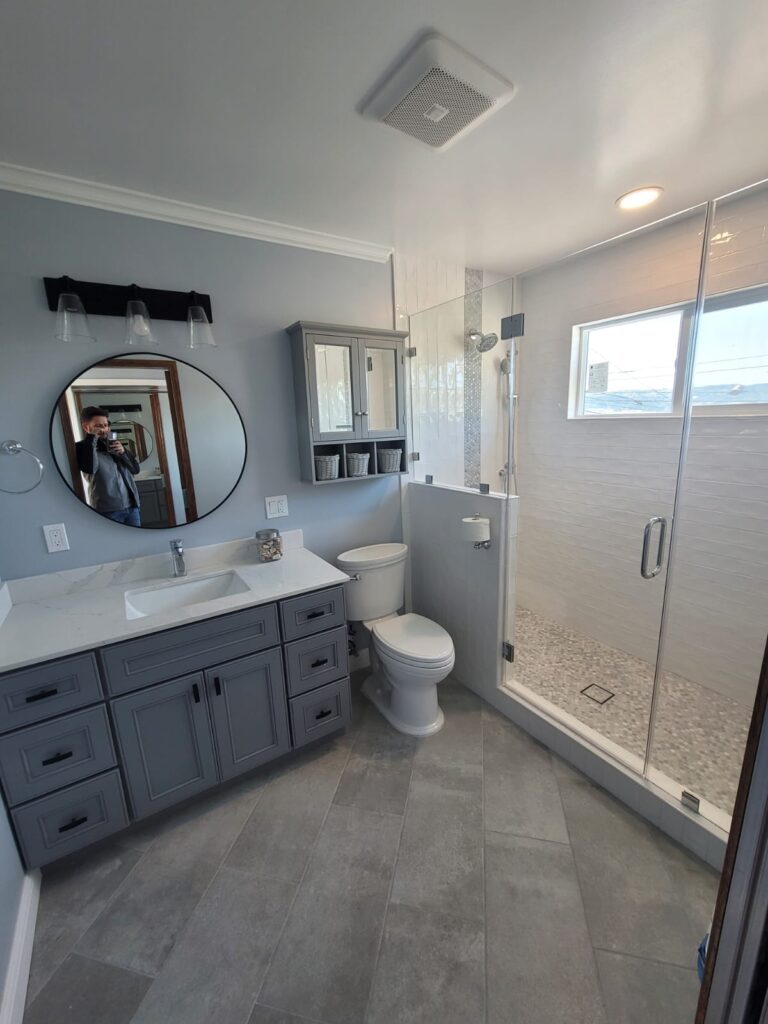
Revitalize Your Bathroom with Expert Shower and Tub Installations by Red White & Blue Construction!
Dreaming of a luxurious bathroom upgrade in Lafayette, CA? Red White & Blue Construction is here to make that dream a reality with our top-notch shower and tub installation services! Our team excels in detailed planning and precise execution, ensuring your bathroom transformation perfectly matches your vision. Specializing in shower and tub installations, we’re dedicated to turning your bathroom into a stylish, functional, and modern sanctuary. Our outstanding reputation throughout the Bay Area reflects our unwavering commitment to quality, precision, and excellence in every project phase.
At Red White & Blue Construction, we believe in enhancing more than just your bathroom fixtures; we aim to elevate your entire home renovation experience. With meticulous planning, transparent pricing, and exceptional customer service, choosing us for your shower and tub installation means embarking on a seamless and enjoyable renovation journey. Let Red White & Blue Construction handle all your bathroom remodeling needs and take the first step toward a more elegant and functional bathroom. Contact us today to get started!
Disclaimer
The materials available on this website are for informational and entertainment purposes only and not to provide advice. You should obtain advice concerning any particular issue or problem from a professional. You should not act or refrain from acting based on any content included in this site without seeking legal or other professional advice. The information presented on this website may not reflect the most current building developments. No action should be taken in reliance on the information on this website. We disclaim all liability concerning actions taken or not taken based on any or all of the contents of this site to the fullest extent permitted by law.

